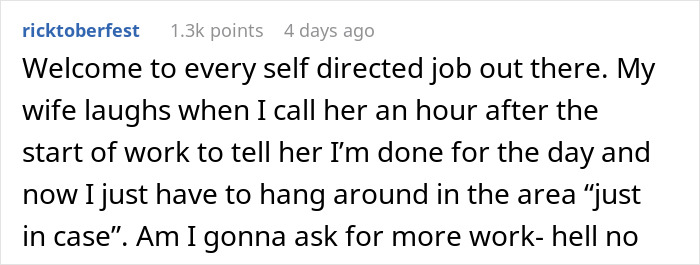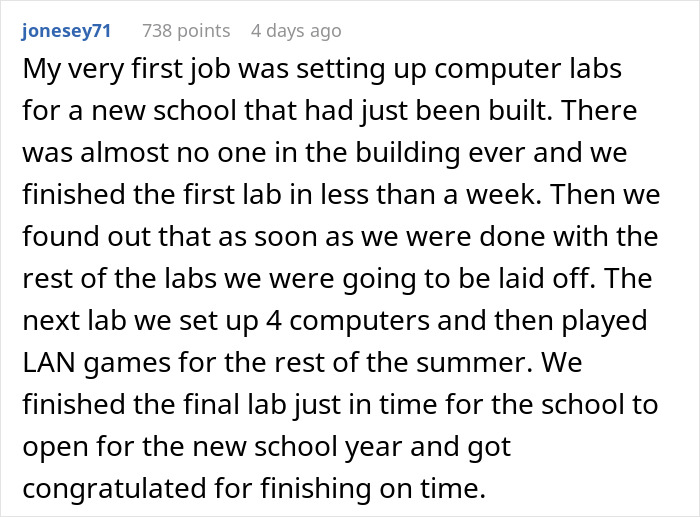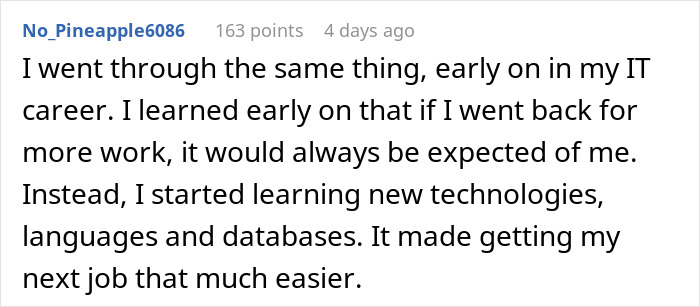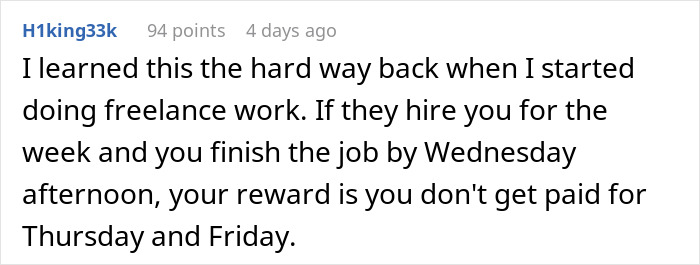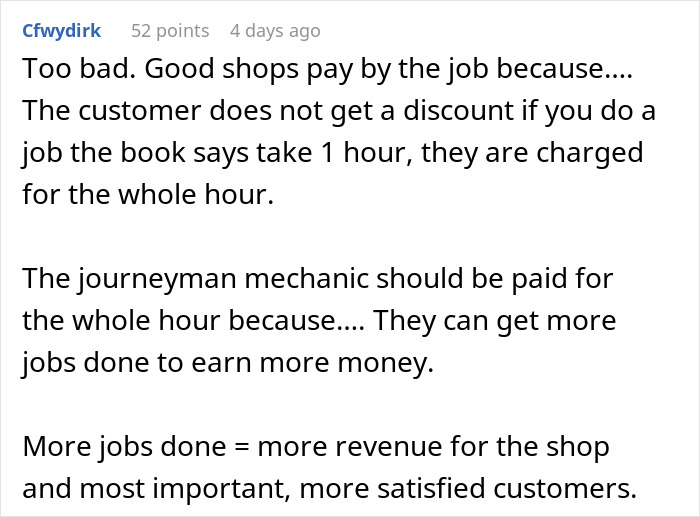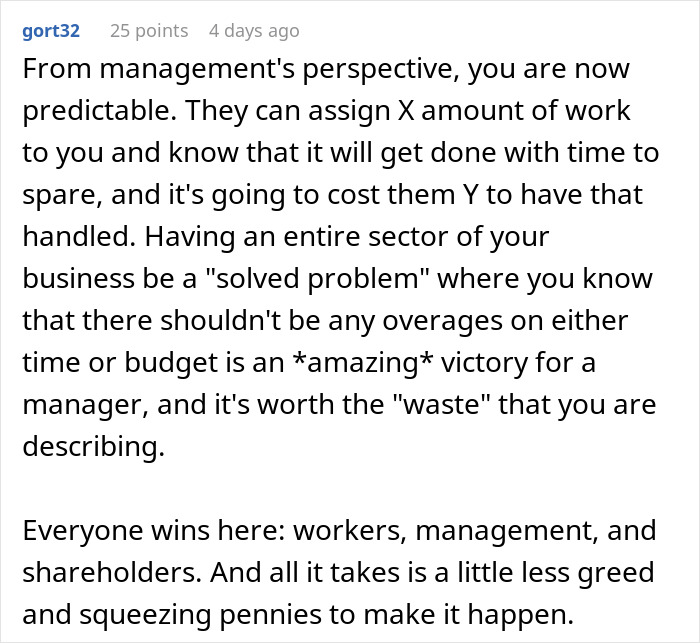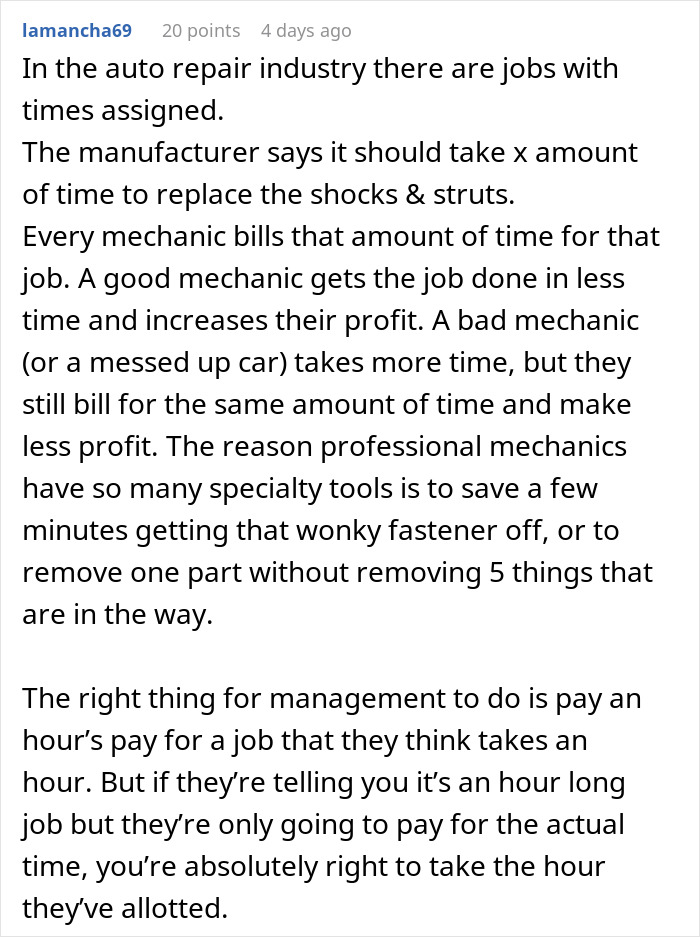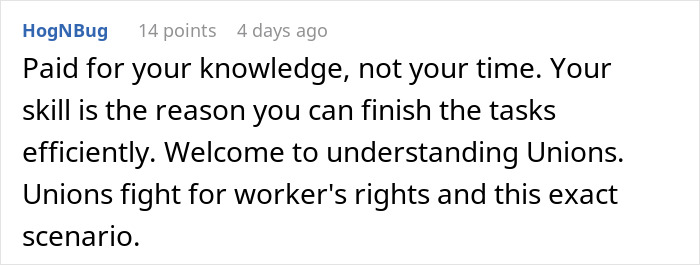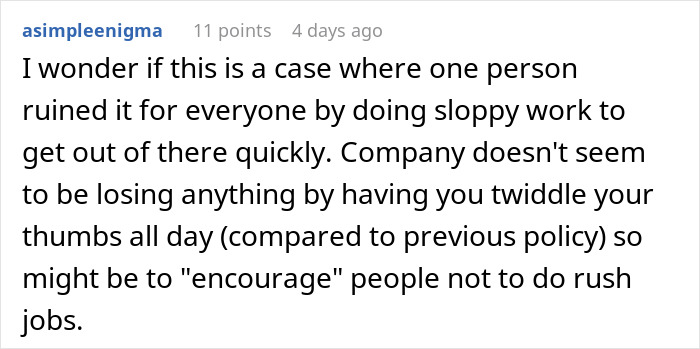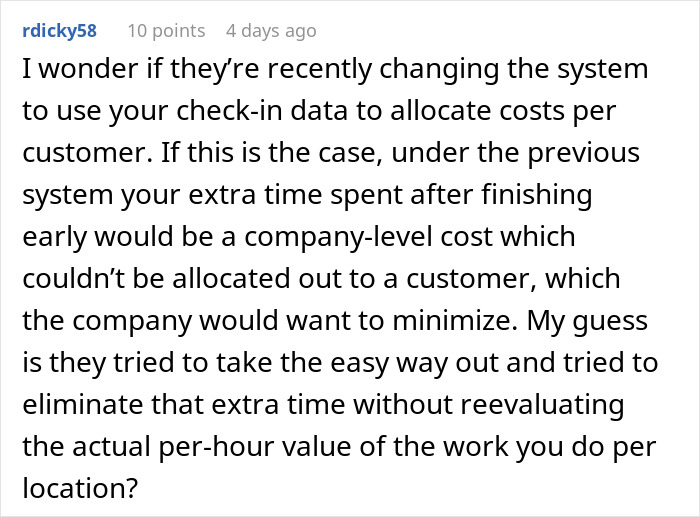We all perform our work tasks at different speeds. What one person might do in an hour can take another 3 hours due to their experience, skills, training, or focus. One of the issues that employers face with people who finish their duties earlier is their reward system. Should they be compensated with more work or allowed to go home early for being more efficient than others?
This company solved such a problem by paying less to those who finished their assigned tasks quicker. Refusing to take paycheck cuts, productive workers maliciously complied with the new policy by slacking off.
Scroll down to find the full story, and a conversation with its author, who kindly agreed to answer a few questions about it.
Some employees tend to finish their tasks quicker than others

Image credits: Zen Chung / pexels (not the actual photo)
This company solved this by paying less to those who finished their duties earlier
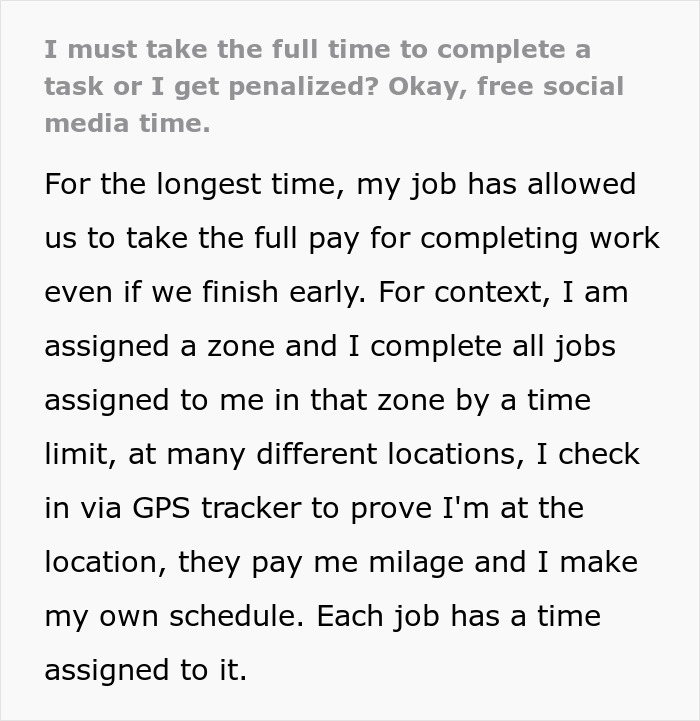
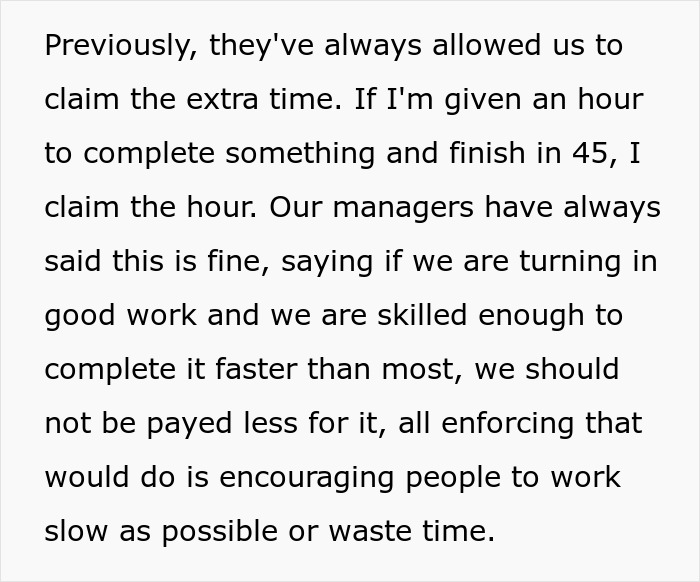

Image credits: Maria Orlova / pexels (not the actual photo)
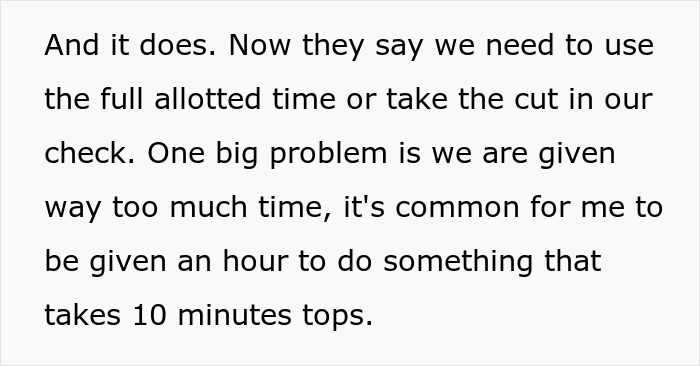
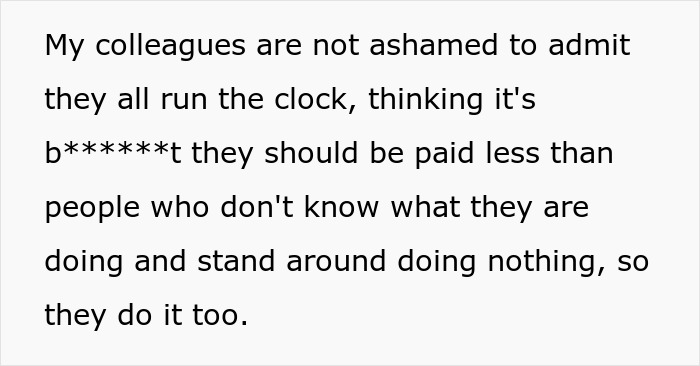

Image credits: Meruyert Gonullu / pexels (not the actual photo)
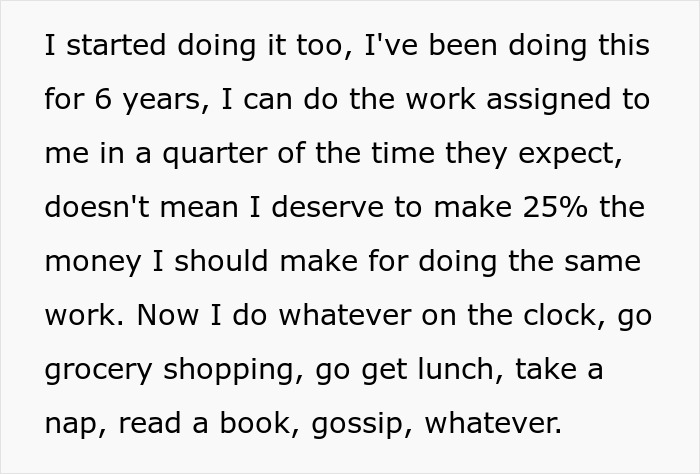
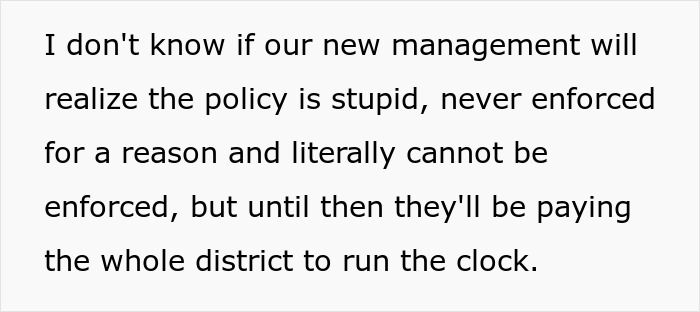
Image credits: VampArcher
“It kills my motivation to tell myself that if I complete tasks properly, my check will be docked”
We were lucky enough to get in touch with the original author of this story, who kindly agreed to answer a few questions about it. They shared with us that what inspired them to share this story online was conversations with other colleagues sharing the same frustrations about the new workplace policy.
However, even before this novel change was introduced, they weren’t particularly content with this job. “I get very, very low hours, it’s more of a side gig than a job. But it made my work-life balance easier, being able to finish work to make time for my other job, where I make most of my money,” they told Bored Panda.
The redditor shared with us that scrolling through social media or trying to find other ways to misuse working hours impedes their job satisfaction. “I’m there to work, I like to work, I want to get my work done well and be fairly compensated for it to make time for me to work hours elsewhere. It kills my motivation to tell myself that if I complete tasks properly, my check will be docked, or I have to spend my life just standing around when I could be home doing something else.”
However, sharing this situation online allowed them to vent out these frustrations in a healthy way. “I was overwhelmed by the amount of positive attention and responses I got, very thankful for that,” added the author.
A payment structure largely affects employee efficiency and motivation levels
The way employees are compensated for their time largely affects their efficiency and motivation levels. In redditor VampArcher’s case, their pay is calculated using a mix of task-based and time-based systems. This means that employees are given assignments with designated time to complete them but get paid for the actual time spent on them.
However, such a payment structure doesn’t seem to be appropriate for this particular workplace. Since this structure was implemented, the workers were encouraged to waste time and misuse working hours. In the long term, workers might feel disengaged and unmotivated to work, leading to poorer quality of work.
When employees are penalized for their efficiency and productive skills, this also results in higher frustration and lower morale. It can further negatively affect the company and its goals and even result in increased employee turnover and a loss of profitability.
Admittedly, it’s hard to avoid pay structure changes like the company in this story went through, as it often depends on laws and regulations, competitive needs, economic shifts, and more. But to ensure that workers are content with it, management should clearly communicate changes and expectations about them and consider surveying the people about the new alterations. Getting their opinion can help prevent any possible frustration and employees leaving.

Image credits: Polina Zimmerman / pexels (not the actual photo)
Only 32% feel like they’re being paid fairly
However, the author of this story is not alone in being dissatisfied with the way they are compensated. In fact, in 2022, employers learned that nearly 70% of the workforce is not happy. Out of 3,500 workers surveyed, it was found that only 32% feel like they’re being paid fairly, according to management consulting company Gartner.
The research has also revealed that people’s perceptions of their salary are often influenced more by how they feel about the organization as a whole than by the actual compensation itself. Therefore, for employees to feel like they’re being fairly compensated, companies should strive to increase trust in the organization.
This starts with companies paying workers the market rate for their positions and then providing future raises based on performance. The payments shouldn’t be stagnant and should be reviewed over time. In addition, the pay structure needs to be outlined for all employees so everyone can understand what they are compensated for.
“Make sure that internally there isn’t any disparity or discriminatory practices,” said Mary Rizzuti, a partner at Compensation Resources, a human resources and compensation consulting firm. “After you’ve done all of that work, then the next key ingredient for a company is having a good communication policy.”
Fostering transparency doesn’t cost much and has the greatest impact on restoring trust in the organization and improving perceptions of pay fairness and pay equity.

Image credits: Arina Krasnikova / pexels (not the actual photo)
The author provided more information in the comments
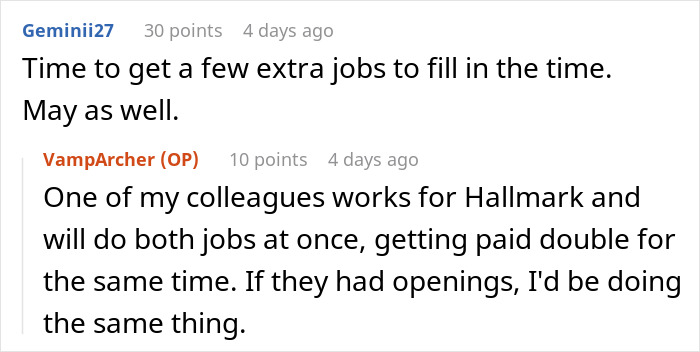
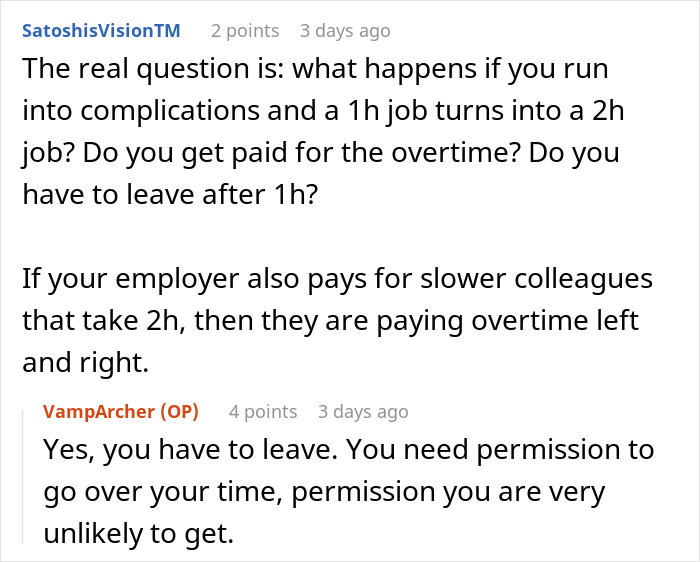

People shared various reactions and similar stories
